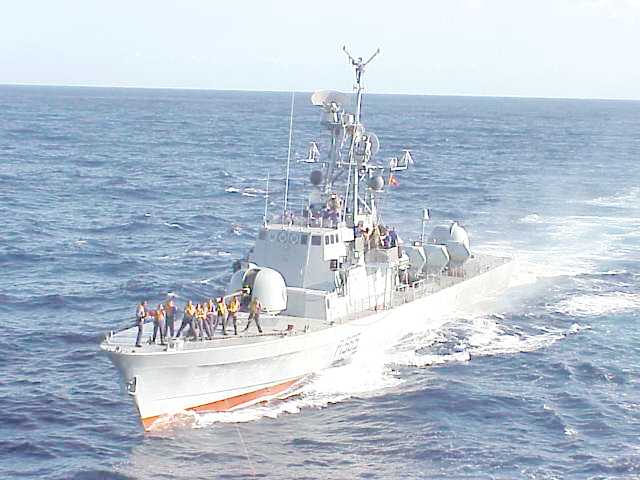
One of the most popular naval guns ever produced, with OTO-Melara reporting that about 1,000 Compact and SR guns were in service in 51 navies around the world as of December 2002. This weapon is produced under license in Australia, India, Japan, Spain and USA. It is manufactured in the United States by United Defense (now part of BAE Systems), in Japan by Japan Steel Works and in Spain by FABA (formerly IZAR, formerly Bazán).
Under USN nomenclature, the Compact is designated as the Mark 75. USN ships use the Mark 92 FCS which is the USN's version of the Signall M20 series FCS. The Naval Systems Division (NSD) of FMC Corporation and General Electric Co. (Ordnance Systems Division) were both licensed by OTO-Melara and competed for the right to manufacture the Mark 75 in the United States. In 1975, FMC/NSD (now part of United Defense) won the competition and the first gun mount produced in the United States was delivered in August 1978. Since 1981 all Mark 75 orders for the USN were competed for by FMC/NSD and OTO-Melara.
The Compact was developed from the earlier 76 mm/62 M.M.I. mounting and uses a two-piece water-cooled barrel with a replaceable liner. The gun is fitted with a small-hole muzzle brake and fume extractor. The shield is made of fiberglass.
There are reports that the Compact has reliability and accuracy problems. When fired at maximum ROF, there is a tendency for the mount to "self-destruct," in the words of one of the Project Engineers who worked on the weapon. During a test shoot, the weapon was unable to hold a 20-round burst on a 20 x 20 foot (6m x 6m) target at 500 yards (460 m).
The "Super Rapid" (SR) is an improved, faster-firing version designed specifically for anti-ship missile defense. Accuracy was improved compared to the Compact, partly by reducing the weight of the moving parts which reduced the vibration problems. OTO-Melara claims that these changes have reduced the standard deviation values to less than 0.3 milrads (0.017 degrees) at 1,000 m(1,100 yards) per burst of 10 rounds when fired at the maximum ROF.
The gun shield for the SR is a rounded design similar to that for the Compact. However, this similarity is only skin-deep as the SR mounting has been strengthened in order to resist overpressures up to 14 psi (1.0 kg/cm2) vs. a 7 psi (0.5 kg/cm2) rating for the Compact mounting. As an option, both the Compact and the SR are available with a boxier-looking reduced radar cross section (RCS) gun shield and one of these was used to arm the French-built Saudi Arabian frigate Makkah.
To achieve the higher rates of fire for the SR, OTO-Melara modified the ordnance itself as well as the ammunition feed and fuzing. As a result, existing Compact mountings cannot be converted to the SR standard, but a retrofit kit is available that does increase the ROF for the older weapon. The magazine for the SR is independent of the turret, which means that the feed can be interrupted to insert different kinds of ammunition, making the gun more flexible against multiple targets.
The Italian Navy considers the SR to be an effective anti-missile weapon and new ships are being built with this weapon in place of the twin "Fast 40" used on earlier ships in that role. OTO-Melara estimates that, combined with the Dardo FCS, the SR can begin engaging attacking missiles at about 6,600 yards (6,000 m), with the first rounds arriving on target at 6,000 yards (5,500 m). With these ranges, a single gun can deal with up to four subsonic sea-skimmer missiles, arriving simultaneously on courses 90 degrees apart, before any reaches 1,100 yards (1,000 m).
As of this time (March 2006), the USN has no plans to use the SR version. Existing ships will continue to use the Compact and newer ships are being fitted with the 57 mm Mark 110.
Compared with the USN 5" (12.7 cm) and Italian 127 mm (5") guns, these weapons cannot fire any of the more sophisticated munitions as they use a much smaller projectile. Compared to the older USN 3" (7.62 cm) and Italian 76 mm (3") M.M.I. guns, this weapon has far lower manning requirements and carries a much larger supply of ready-service ammunition, allowing the gun to fire longer bursts without reloading. As the Compact and SR mountings are very nearly unmanned, they can fire at very short notice, about five to ten seconds from a cold start.
OTO-Melara is now offering the DAVIDE anti-missile system for both new installations and as a retro-fit kit to existing mountings. This system is designed to allow these guns to act as an inner-defense against sea-skimming or diving supersonic and subsonic missiles. The system will be used in conjunction with the steerable DART anti-missile projectile and provides a continuous data stream to all projectiles in flight.
Actual bore diameter of all guns is 76.2 mm (3.00").
| Designation | Italy: 76 mm/62 (3") Compact and SR
USN: 76 mm/62 (3") Mark 75 |
|---|---|
| Ship Class Used On | Compact
USN: Oliver Hazard Perry class Used by fifty nations Super Rapid
|
| Date Of Design | Compact: About 1963
Super Rapid: N/A |
| Date In Service | Compact
First introduced in 1964 USN Mark 75 Introduction: 1971 Super Rapid
|
| Gun Weight (tube and liner) | 1,686 lbs. (765 kg) |
| Gun Length oa | N/A |
| Bore Length | 186 in (4.724 m) |
| Rifling Length | 158 in (4.012 m) |
| Grooves | 24 |
| Lands | N/A |
| Twist | Uniform RH 1 in 30 |
| Chamber Volume | N/A |
| Rate Of Fire | Compact and Mark 75: 80 - 85 rounds per minute (in automatic mode)
Compact with retrofit kit: 100 rounds per minute SR: 120 rounds per minute (139 achieved on trials) |
| Type | Fixed |
|---|---|
| Weight of Complete Round | All except Vulcano: 27.2 lbs. (12.34 kg)
Vulcano: N/A |
| Projectile Types and Weights | Compact: All types: 13.88 lbs. (6.296 kg)
Super Rapid SR 1
|
| Bursting Charge | HE-MOM: 1.65 lbs. (0.75 kg)
SAPOM: 1.01 lbs. (0.46 kg) Compound A3 HE SAPOMER: 1.15 lbs. (0.52 kg) HEXAL-30 DART: 0.88 lbs (0.4 kg) Vulcano (Pre-fragmented, multipurpose, SAP): N/A |
| Projectile Length | HE-MOM: 13.98 in (35.5 cm)
SAPOM: 14.4 in (36.6 cm) SAPOMER: 14.78 in (37.6 cm) Vulcano: 5 Complete Round: 35.45 in (90.04 cm) |
| Propellant Charge | 7.85 lbs. (3.56 kg) |
| Cartridge | 76.2 mm x 635.5 mm |
| Muzzle Velocity | 3,000 - 3,024 fps (914 - 925 mps) |
| Working Pressure | 22.8 tons/in2 (3,400 kg/cm2) |
| Approximate Barrel Life | N/A |
| Ammunition stowage per gun | Compact 6: 80 ready rounds on mount
SR: 85 ready rounds on mount |
- ^Ammunition includes: Multirole pre-fragmented HE-MOM and HE-PF-OM, semi-armor piercing HE-SAPOM, semi-armor piercing extended range HE-SAPOMER, pre-fragmented and new Course Corrected Anti-Missile Shell CCAMS. SAPOM and SAPOMER projectiles use base fuzes. MOM-type rounds use tungsten cubes as penetrators.
- ^The HE-MOM round is pre-fragmented to enhance the splinter effect.
- ^DART stands for "Driven Ammunition Reduced Time of flight." This is a sub-caliber, guided projectile with canard control, intended to improve the performance of these guns in the antimissile role. OTO-Melara claims that an average of only three of these projectiles are needed per engagement. The proximity fuzes for this munition are said to be effective within 6 feet (2 m) of the water surface and are designed to trigger when within 30 feet (10 m) of the target.
- ^A November 2005 OTO-Melara Press Release stated that firing trials with DART had been performed at PISQ (Poligono Interforze Salto di Quirra), an Italian interservice firing range located in Sardinia. During the firing trials, the DART projectiles correctly entered and followed the guidance beam and maneuvered within the accuracy requirements for distances over 5,500 yards (5,000 m). This was seen as a crucial milestone, as these tests showed that DART can be successfully guided over the expected engagement ranges.
- ^The Vucano round extends down into the cartridge case and far into the propellant load.
- ^The Compact uses a single main feed drum which holds 70 rounds. This feeds a central screw hoist which holds six rounds. The hoist leads up to a loading station below the left trunnion. Two arms alternate picking up rounds and placing them into a breech loading drum that holds four rounds. The drum feeds rounds onto a loading tray which also receives the spent cartridge.
- Misfires must be manually removed.
| Elevation | Shell | |||||
|---|---|---|---|---|---|---|
| 13.88 lbs. (6.296 kg) HE | 14.3 lbs. (6.5 kg) SAPOM | 14.6 lbs. (6.6 kg) SAPOMER | DART | Vulcano | ||
| Range @ 45 degrees | 20,122 yards (18,400 m) | 17,500 yards (16,000 m) | 21,870 yards (20,000 m) | - | - | |
| Effective Range | 8,700 yards (8,000 m) | - | - | 5,500 yards (5,000 m) | 43,750 yards (40,000 m) | |
| AA @ 85 degrees | 13,200 feet (4,000 m) | - | - | - | - | |
| Designation | Single Mountings 1a 2a 3a 4a Italy: Compact, Super Rapid (SR) 5a and Strales USN: Mark 75 |
|---|---|
| Weight | Compact (without ammunition): 16,400 lbs. (7,439 kg)
SR (without ammunition): 16,800 lbs. (7,620 kg) Strales: N/A Compact (with ammunition and off-mount components): 18,783 lbs. (8,520 kg) |
| Elevation | -15 / +85 degrees |
| Elevation Rate | 35 degrees per second |
| Train | unlimited (uses a slip ring) |
| Train Rate | 60 degrees per second |
| Gun recoil | N/A |
- ^The complete Mount is a single piece installation and consists of the shank which is below the weather deck, the turret on the main deck, and a servo-systems control and distribution box. The complete mounting may be divided up into two component groups: The lower structure (below deck) and the upper structure (above deck). Lower structure components deliver an uninterrupted flow of ammunition to the gun. Upper structure components load the ammunition, aim the gun, fire the ammunition and eject the empty powder cases.
- ^These mountings are normally controlled remotely, but there are provisions for an emergency local control with a stabilized line-of-sight system for the operator.
- ^Mountings need an electrical supply of 440V, 3-phase, 60 Hz to power the main circuit while the servo and synchro network require a 115V, 1-phase, 400 Hz supply.
- ^Mountings are unmanned but require two to three crewmen below deck to reload the revolving magazine.
- ^The Super Rapid mount performs several operations in parallel that in the Compact were performed in sequence. The recoil length and the firing cycle have been shortened and ramming is not part of the sequence in which the spent cartridge is ejected.
- Retrofit kits that will allow Compact, Super Rapid and Strales mountings to use the new Vulcano round are being developed. Depending upon the gun configuration, the retrofit can be done on the ship, otherwise, it will be a factory job. The kit includes a Vulcano programmer and possibly a new automatic feeder system that will hold 80 rounds of four or more ammunition types. A fire control system that will interface with the ship's combat management system will also be part of the kit.
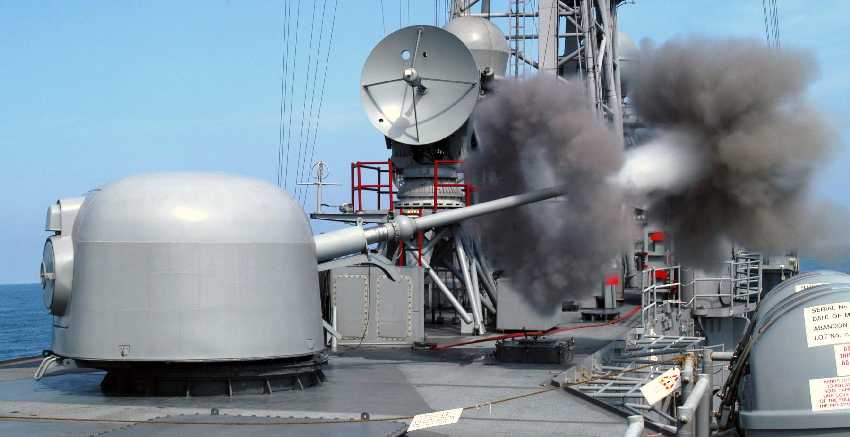
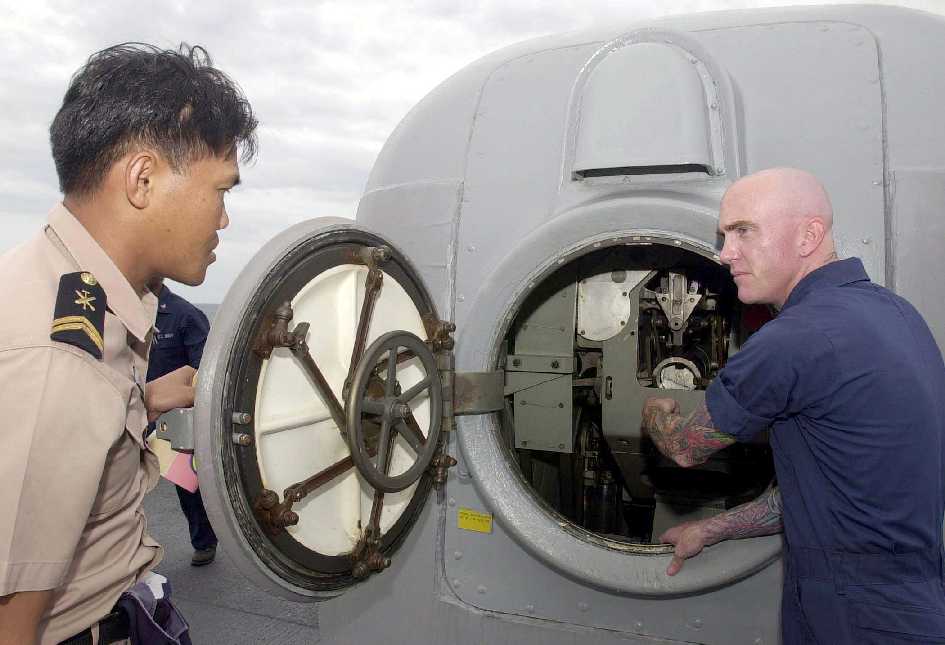
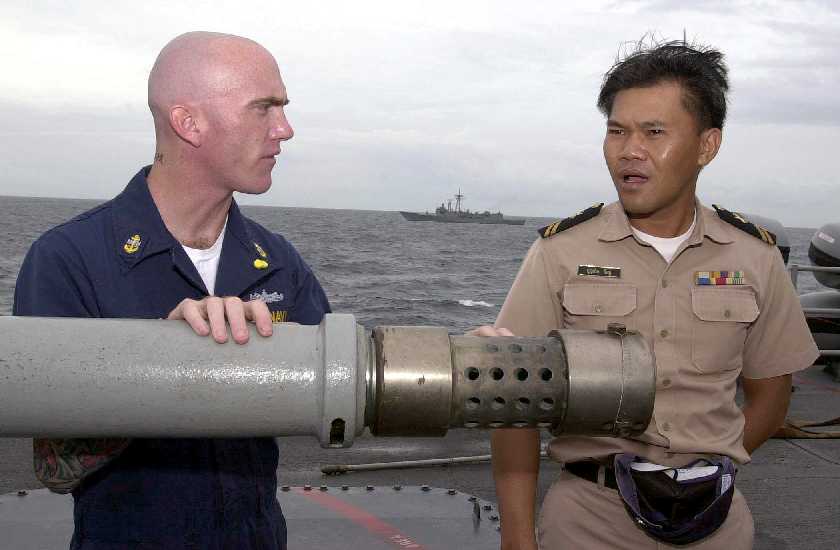
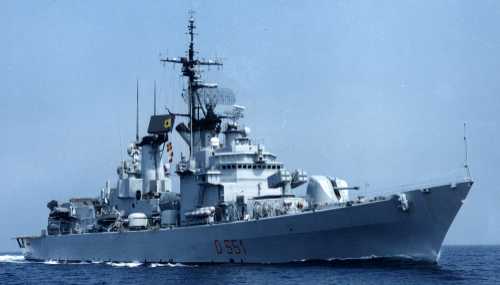
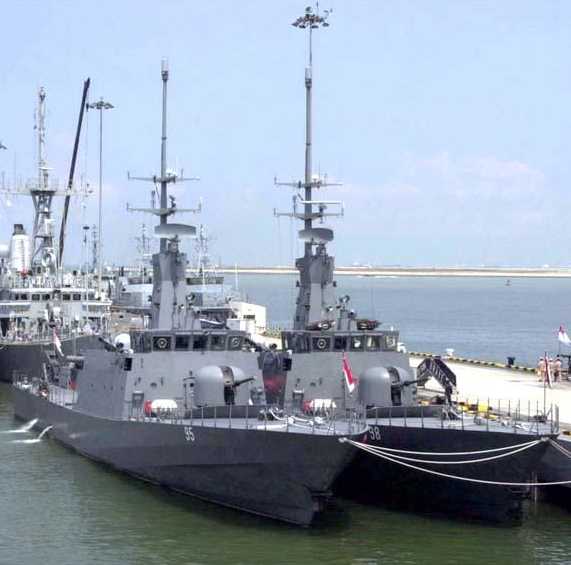
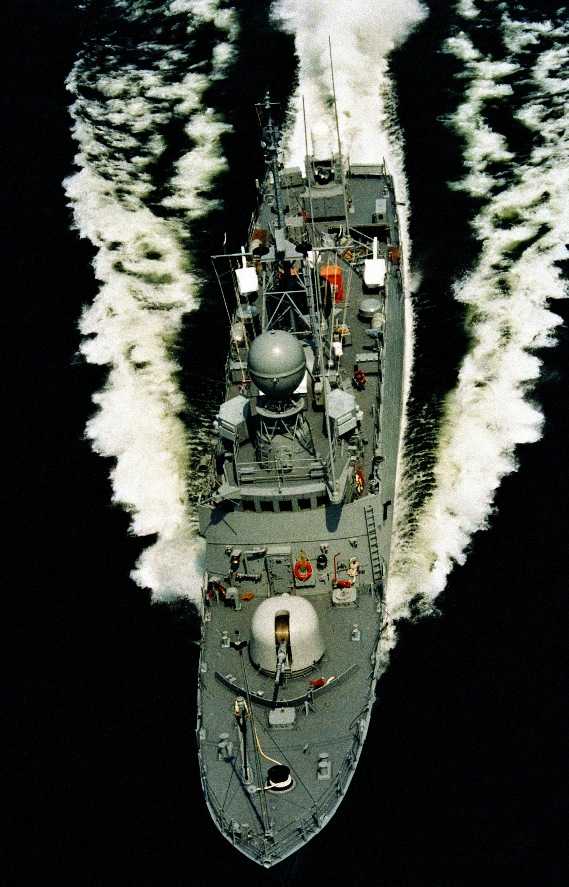
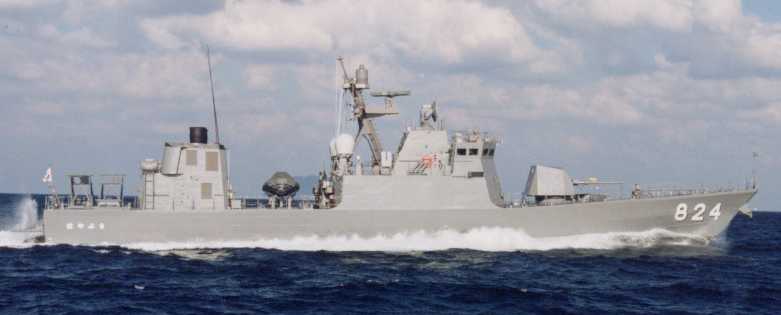
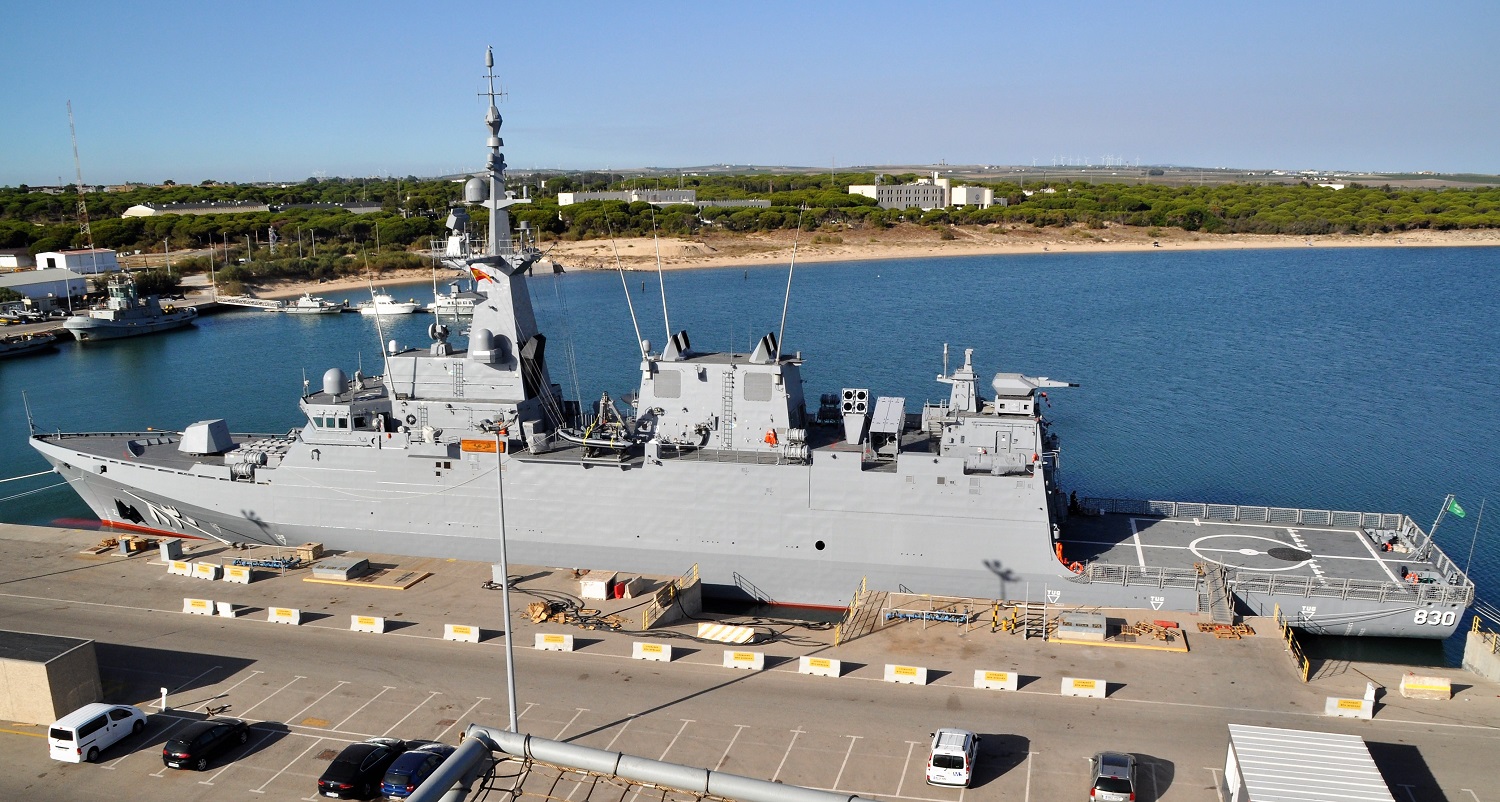
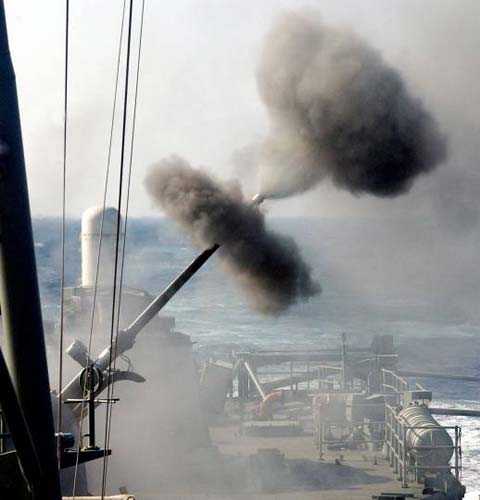
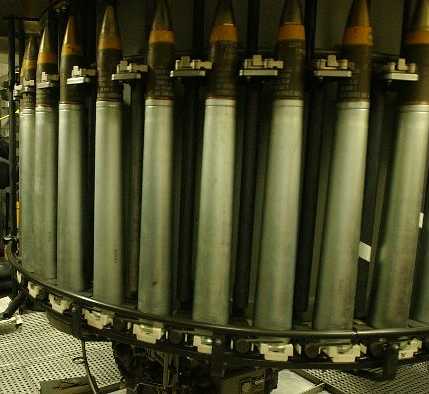
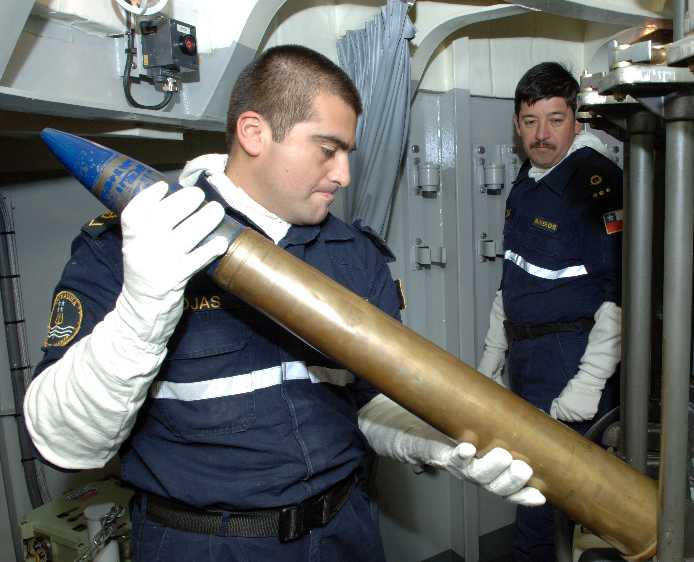
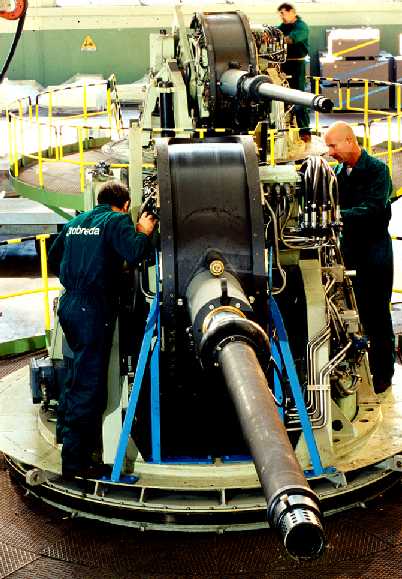
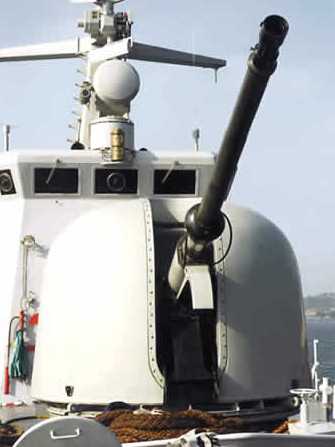
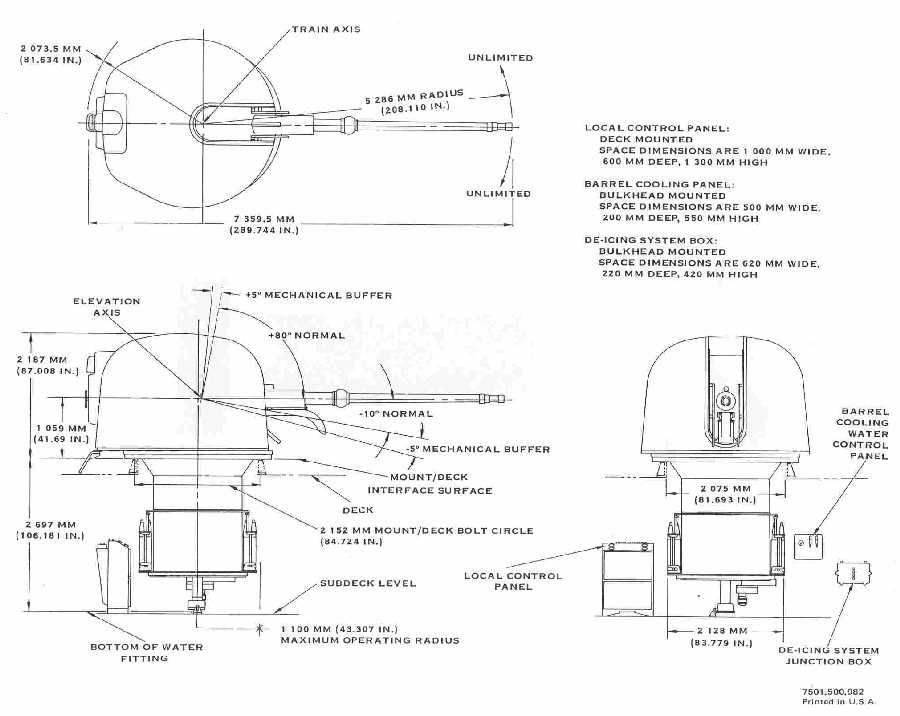
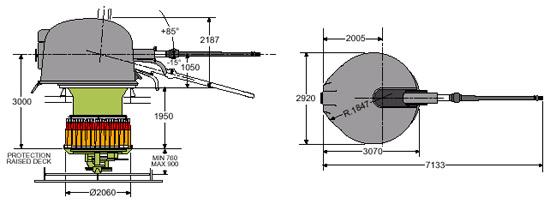
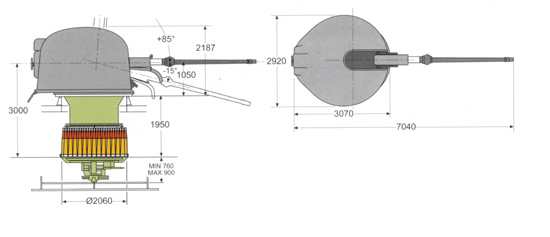
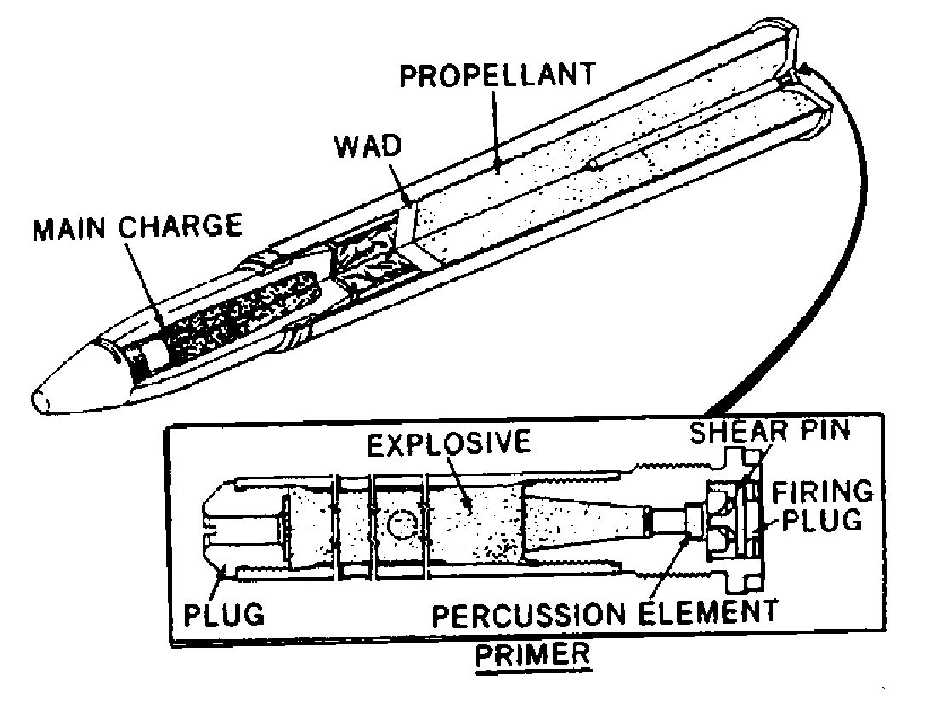
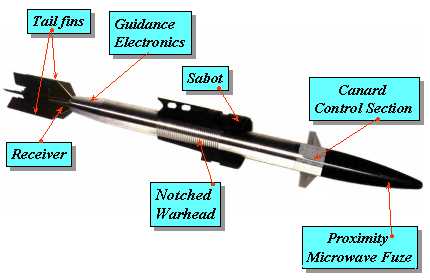
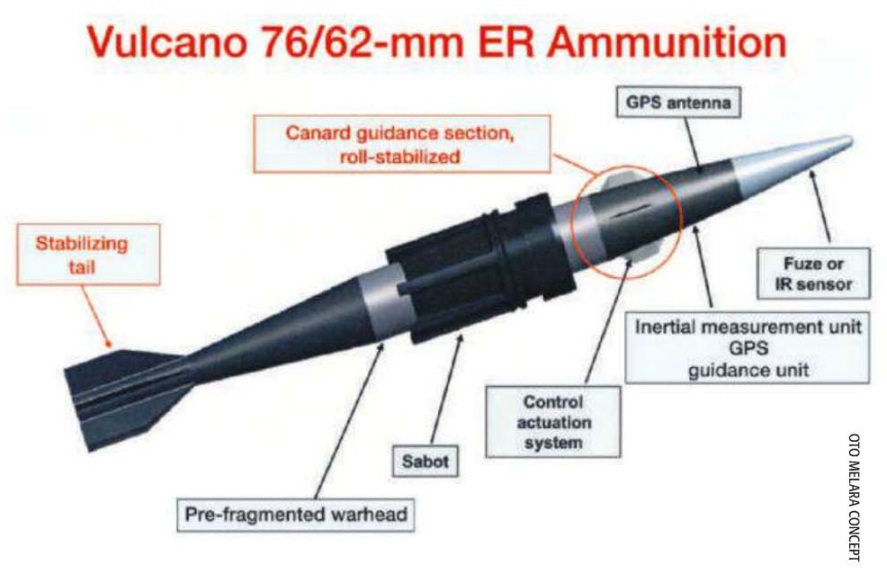
"Jane's Pocket Book 9: Naval Armament" edited by Denis Archer
"The Naval Institute Guide to World Naval Weapon Systems 1991/92" by Norman Friedman
"Jane's Ammunition Handbook: Ninth Edition 2000-2001" edited by Terry J. Gander and Charles Q. Cutshaw
---
"Rangefinders: Oto Melara blends performance and economy in land and sea guns" article by Andy Nativi in "Defense Technology International Magazine" November 2011
---
IZAR Press Releases
OTO-Melara Press Releases
United Defense Press Releases
US Navy Fact File
---
Special help by Patrick Vera
21 May 2006 - Benchmark
15 October 2009 - Corrected typographical error
16 June 2010 - Added cutaway view of Mark 165 Round, updated links to OTO-Melara videos
06 November 2011 - Added Vulcano
08 January 2013 - Updated to latest template
31 July 2013 - Corrected typographical errors
28 April 2021 - Converted to HTML 5 format, reorganized notes
07 December 2022 - Added photograph of Al Diriyah
